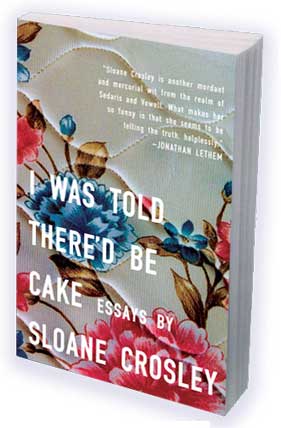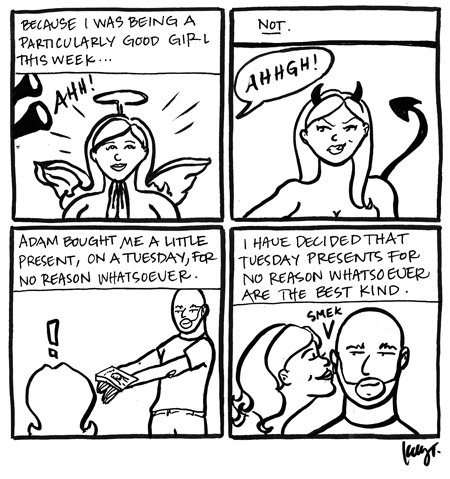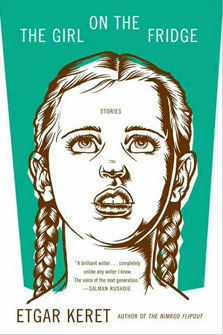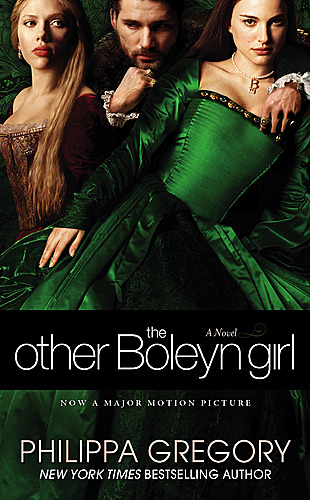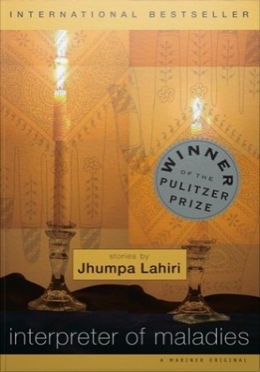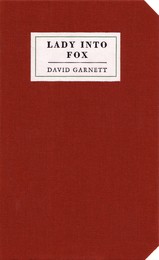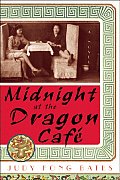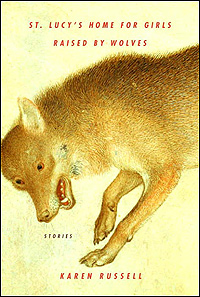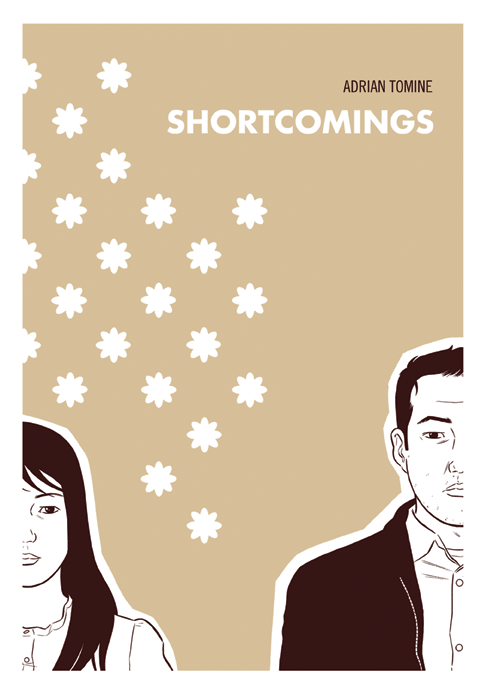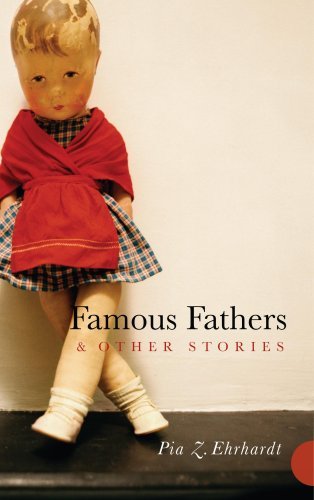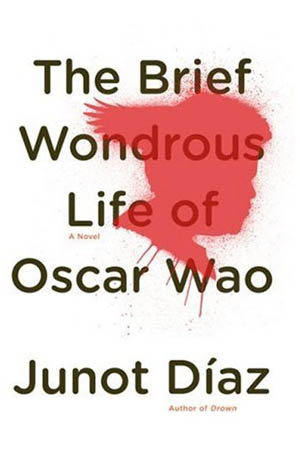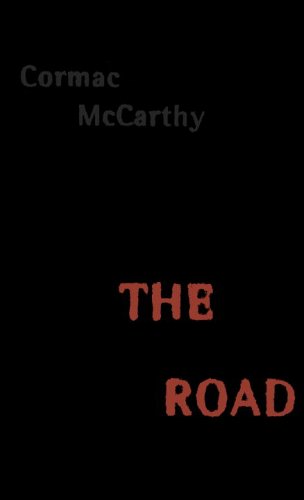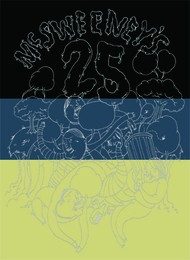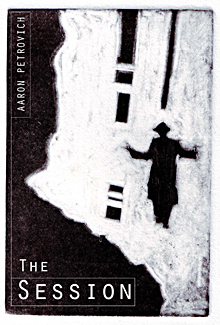So I have been incredibly delinquent in posting reviews of books read this year. Apparently since I decided not to read 52 books and track them again this year as I did in 2007, my whole reviewing system fell apart entirely. So I’m going to do a whole chunk right here, but I’ll try to keep it short (you know that won’t happen because I’ll get all ranty and then that will be the end of things being short…) These are in no particular order:
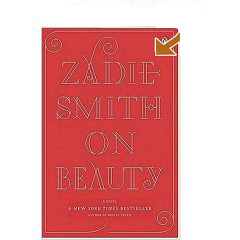
ON BEAUTY by Zadie Smith – Fiction
A wonderful wonderful book. This is my first Zadie Smith book and based on this there will be many many more. She has an absolutely beautiful writing style and her characters are all fantastic. They’re full of flaws and annoying character traits (some more than others) elegantly coupled with beautiful gestures. They are somehow like tragic epic heroes and villians, but dragged down to a realistic middle/upper middle class day to day level. These are people you would really know, probably do know, and they are rendered so beautifully by Smith, who is unafraid to see them as they are and show them to us, stripped naked, and full of vulnerability.
The story itself was fascinating, about two rival professors (one liberal, one conservative), whose personal rivalry has turned their families into rivals over the years. How those rivalries have an incredible ripple effect both within the families, and even out into the world is a wonderful and horrifying thing to watch and it kept the story at an edge of your seat pitch for the entire book. Smith also started the book with a gimmicky little trick of showing the emails from the eldest son of one the families to his father. In the hands of a lesser author this could have been a huge mistake, but instead was a clever opening to all these flawed beings running around trying to both destroy and save the world and themselves. There’s also an excellent Romeo & Juliet element early on in the book that works as a great hook, getting you enmeshed in the brutal reality of these two educated and “civilized” families early on and an excellent foreshadowing of what this rivalry may end up costing everyone. A really brilliant work overall.
My one minor complaint is that the ending is rather abrupt. Smith takes such time with both her characters and plot lines, that you are often left wondering where the hell the story is actually going, but you don’t really care because you’re having such a wonderful time just experiencing it, but in the end Smith cuts everything abruptly short. It seemed just a little bit like taking the easy road with some very hard decisions she and her characters had made. That said, it was still a wonderful read. Perhaps there is actually nothing wrong with the ending at all and I just didn’t want to leave Smith’s world…and so what you’re reading is just my sour grapes at being denied a few extra pages…4 Stars.
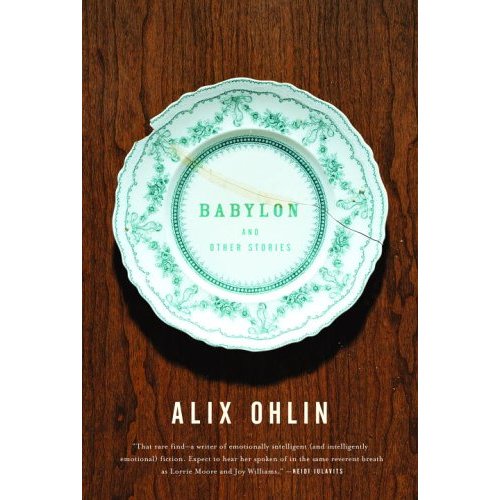
BABYLON & OTHER STORIES by Alix Olin – Short Fiction Collection
I took Babylon & Other Stories on vacation with me (always a risky process choosing a perfect book – or four – for vacation) and I could not have been happier with my choice. The entire collection was beautiful and cohesive. The stories were masterfully told tales from characters from all different walks of life and speaking from both male and female point of views with equal authenticity.
I don’t think I have a single complaint about Olin’s collection except to say that as with all collections, certain stories were stronger than others and so as always there is a certain uneven aspect to the collection as a whole, however Olin’s voice is powerful and clear throughout. The King of Kohlrabi, Simple Exercises For The Beginning Student, You Are Here, A Theory of Entropy, Edgewater, Wonders Never Cease, Meeting Uncle Bob, Local News, The Swanger Blood, In Trouble With The Dutchman, and An Analysis of Some Troublesome Recent Behavior are some of (many of?) the standouts in Olin’s collection.
A must for anyone interested in short fiction. Olin is one of the powerful female short fiction writers to watch. 4.5 stars.

DO THE WINDOWS OPEN by Julie Hecht – Short Fiction Collection
My experience with Do The Windows Open was love hate from the very first story to the last. I first became interested in Julie Hecht more out of masochistic curiosity than anything else as I read an interview with her in a recent issue of The Believer and I found her to be an incredibly prickly and difficult subject in the interview and she borderline offended me (and I’m sure scores of others) in the interview, despite the interviewers attempts (frequent and valiant) to make it a pleasant and rewarding experience for her (and readers). However, I had ignorantly never really heard of her, and found out from the interview that she was quite prolific. Hecht writes short fiction exclusively, which is rare to make a successful career out of, and every piece of hers that she has ever submitted (I could be slightly misquoting here) has been published in The New Yorker (I make a habit of reading every fiction piece in every New Yorker – at least since I stared reading it) and so I found this particularly intriguing.
I liked that Hecht’s book was actually a bunch of short fiction stories about the same character. I liked that the central character was horribly flawed, it made her seem real. I was not that fond of the central character however, which sometimes made it hard to live in her world for every story. I also had trouble separating Hecht from her character, perhaps because from reading The Believer article she seemed a lot like the character. I guess in the end I have to say that I’m not a fan of Julie Hecht, but I’m slowly becoming a fan of her work. And judging from her Believer interview…that may be how she wants it. 3 stars.
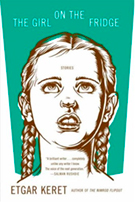
GIRL ON THE FRIDGE by Etgar Keret – Short Fiction Collection
Reading Etgar Keret is like eating a huge spicy meal and then going straight to bed and having the craziest most insane, but beautiful and haunting dreams that you think you want to wake up from, but once you do you just wish you could crawl back into them.
A lot of people don’t “get” Keret, and I can understand why. His stories are complicated and bizarre, but extremely short and they often feel unfinished, like tiny vignette slices of various lives, but by focusing on those things, they are missing the point. He is a beautiful writer, with sometimes elegant and sometimes aggressive stories that just grab you and shake you. They stay with you long after finishing his book.
I was introduced to Keret with his collection The Nimrod Flipout, which I do slightly prefer to this newest collection, but both are excellent works. And for those of us (me!) who like to write very short pieces, he’s a real inspiration of how it can be done well. 3.5 stars

DIVORCED BEHEADED SURVIVED: A FEMINIST REINTERPRETATION OF THE WIVES OF HENRY VIII by Karen Lindsey – Non-Fiction
If I hadn’t read The Six Wives of Henry VIII by Alison Wier, I might have looked more fondly upon this book, but it really suffered in comparison. The writing was not as strong, and for a subject that has been researched to death, presentation, organization, and strong writing really can make the difference. I found the chapter on Anne of Cleves to be by far the best, most interesting, and well written section of the book, and also the most thoroughly researched, as many researchers seem to gloss over Anne of Cleves. I’m not sure how accurate Lindsey’s research on Cleves was, but I found the Cleves chapter to be the only chapter that really was a “feminist reinterpretation” as the book title suggested. Had Lindsey treated all of the wives of Henry the eighth with the same strong feminist hand she gave Cleves the book would have soared to great heights, unfortunately it ends up being mediocre at best in comparison to the deluge of material already available. 2 stars
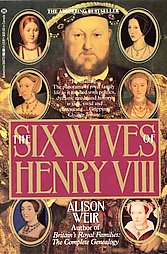
THE SIX WIVES OF HENRY VIII by Alison Wier – Non-Fiction
So I went through this Anne Boleyn phase, and part of that included reading some actual Non-Fiction (rare for me these days) and the second book I read about Boleyn was Alison Wier’s The Six Wives of Henry VIII. It’s an excellent and comprehensive (nearly 600 pages) account of the six wives unfortunate enough to be married to Henry VIII. I thought Wier’s book was well written and informative, but I did wish a little more for her voice within the book, rather than just the facts. The book itself was fascinating, if only because these women were fascinating, and Wier does an excellent job of relaying the information, but it could have used a little more passion…a little more soul. 3.5 stars
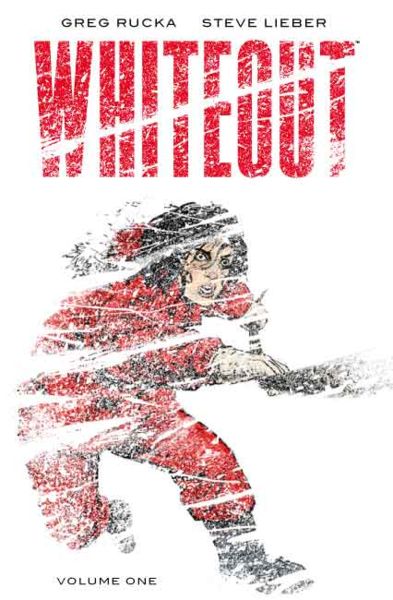
WHITEOUT by Greg Rucka (writer) and Steve Lieber (illustrator) – Graphic Novel/Comic Book
I’ve long wanted to read Whiteout by Greg Rucka and Steve Lieber, and Adam helped me achieve that dream by bringing it home for me from the bookstore one random day (he’s so good at tiny surprises). It was a great read. I enjoyed the characters and the illustration was beautiful – a real challenge for anyone drawing a story set in Antarctica. Lots of white, you gotta get creative and run with it – and Lieber is incredibly successful. The plot is the weakest element as it is a murder mystery and it is obvious from very early on in the story who the culprit is, but the story is well told, the dialog sharp, and the action furious and so it’s not too upsetting that you can guess the final resolution before you actually get there. Keep your eyes peeled for a film based on Whiteout coming out in 2009 and starring Kate Beckinsale – judging from the poster (see below) it looks awesome, but I’ve been fooled by posters before. Many, many times. 3.5 stars
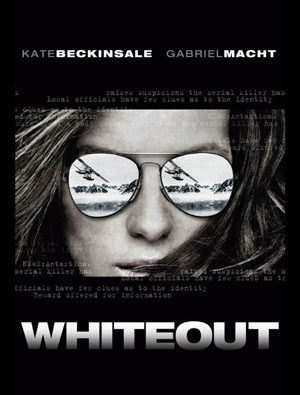
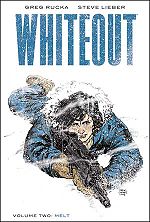
WHITEOUT: MELT by Greg Rucka (writer) and Steve Lieber (illustrator) – Graphic Novel/Comic Book
Whiteout: Melt is good, but unfortunately pales in comparison to Whiteout. The art (still by Lieber) remains interesting and of the same high caliber, but the story, while the dialog is still good and the action still interesting, is lacking. The “mystery” is still easily solvable, and more importantly the mystery is just less interesting and the stakes, though they should be higher (they seem more epic) are just not that well handled. In the end I was disappointed, if only because Whiteout was so good. 2.5 stars
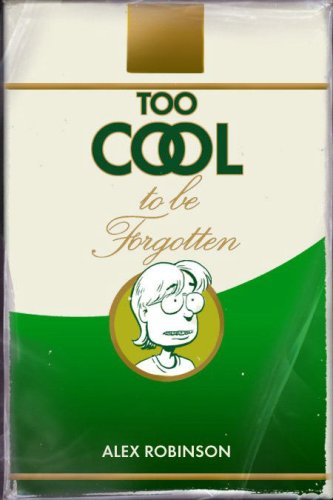
TOO COOL TO BE FORGOTTEN by Alex Robinson (writer & illustrator) – Graphic Novel/Comic Book
I was disappointed in this book, if only because my expectations of Alex Robinson are far too high. I am a huge fan of Box Office Poison, his massive graphic novel of 2001 and also the supplemental BOP. This book had a great hook – middle aged man is “hypnotized” and ends up back in high school. Great premise. I figured with Robinson’s talent for honest story telling and his great sense of humor that this would be a slam dunk. Instead I was disappointed to find a lot of exposition (too much show not tell is especially dangerous in a graphic novel – where there are actual pictures), too much heavy handed “life lessons drama”, and I personally found it unrealistic (but perhaps I harbor more high school regrets than Robinson).
Of note is the fact that Adam found the book to be quite good, and didn’t agree with most of my criticisms. I trust Adam implicitly as a critic of film, books, music, and especially comic books, and so I am torn and can only say that you should check it out and decide for yourself. This one wasn’t for me, but it might be perfect for you. 2.5 stars.
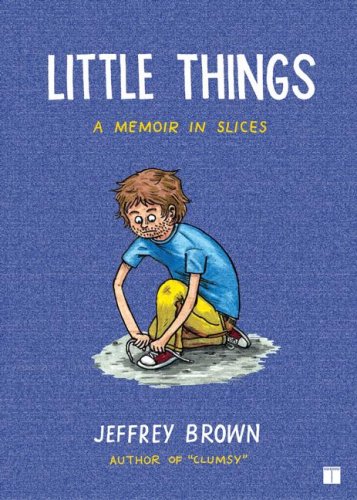
LITTLE THINGS by Jeffrey Brown (writer & illustrator) – Graphic Novel/Comic Book
I am a HUGE fan of Jeffrey Brown, I read absolutely everything of his I can get my hands on. His Unlikely is one of my favorite works of all time – graphic or otherwise.
I am probably not a very balanced reviewer when it comes to Jeffrey Brown, but so be it. I liked Little Things. It started off a little roughly for me, but really picked up speed. It was nice to see Brown working with slightly different material – he usually writes about his past relationships – and he’s a genius at tapping into that sorrow and happiness and bittersweet something that happens to all of us at some point in our lives – but here there is hardly a relationship to be seen.
Little Things is more of a slice of life collection, stories about life and music and people and work, with tiny relationship tidbits sprinkled throughout. I really enjoyed it and found his sense of humor as engaging as ever, and actually slightly more upbeat and less sad-ish than his more relationship focused pieces, but I still think his poignant relationship stories are his best work. It seems impossible for him not to throw his whole heart and soul into those pieces, and it shows. But this was lighter and more fun and so still a solid 4.0 stars
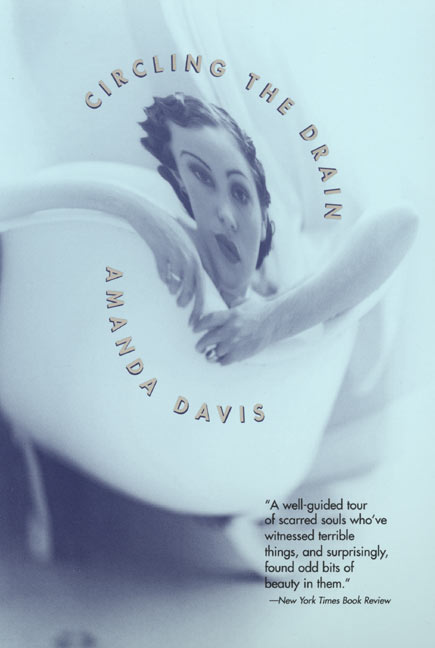
CIRCLING THE DRAIN: STORIES by Amanda Davis – Short Fiction Collection
I am fairly new to Amanda Davis‘ work, and it is a real tragedy that she passed away in 2003 and will not be able to continue to share her wonderful words with the world. This collection really blew me away. It was honest and heartbreaking and beautiful, and particularly as a writer I found it inspiring as she is not afraid to think outside the box. Her stories Fat Ladies Floated In The Sky Like Ballons, Prints, Red Lights Like Laughter, Ending Things, and The Visit I found particularly creative and moving and now think of them as some of the absolute best examples of modern short fiction available to readers (and writers). The title story, Circling The Drain is maybe the best piece I’ve ever read about surviving (or not surviving) an affair. I recommend this collection to anyone that enjoys short fiction, and particularly to anyone looking for something different and groundbreaking to inspire them without being too “experimental and weird”…Davis never delves far enough into experimental that you lose the emotional connection so critical in short fiction. 4.5 stars.

WONDER WHEN YOU’LL MISS ME by Amanda Davis – Fiction
It’s a wonderful discovery to read a short fiction collection that you love and then realize that a full length novel is out there. And even more wonderful for the novel to turn out to be excellent as well. I think novels and short fiction are very different animals and not all people that are brilliant at one can be brilliant at the other, but Amanda Davis certainly nailed it. Wonder When You’ll Miss Me is a heartbreaking and sometimes gruesome look at a teenage girl with a tragedy in her past, one that she spends the entire book trying to escape and overcome. I won’t spoil the details for you, but suffice to say it is a hard look at life and love and youth and beauty and tragedy. Davis has a unique perspective and a way with words that makes her a delight to read. If only we had the opportunity to watch her grow even more as a writer. Rest in peace Amanda Davis. 4 stars
Also read this year and previously reviewed: Superfolks; The Other Boleyn Girl; and Interpreter of Maladies

